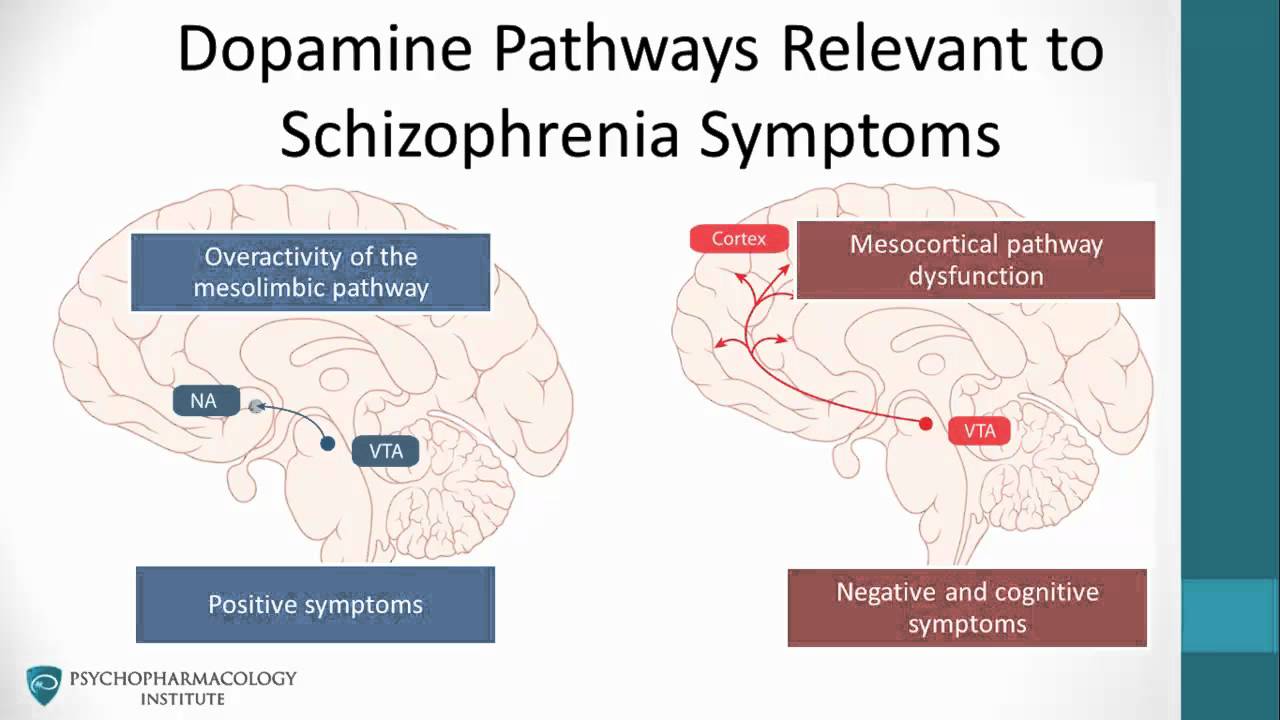New Study Finally Solves A 70-Year-Old Puzzle Of How Dopamine Relates To Schizophrenia
Schizophrenia is a terrible brain disorder that causes delusions, hallucinations, and other forms of psychosis. Researchers at the Lieber Institute for Brain Development (LIBD) think they have solved a mystery that has stumped scientists for more than 70 years: how dopamine relates to schizophrenia. By studying gene expression in the caudate nucleus, a region of the brain associated with emotional decision-making, scientists were able to both identify the genetic mechanism that regulates the flow of dopamine and provide physical evidence that neuronal cells lack the precision necessary to maintain stable dopamine levels.
Author:Suleman ShahReviewer:Han JuNov 02, 202282.3K Shares1.1M Views

Schizophrenia is a terrible brain disorder that causes delusions, hallucinations, and other forms of psychosis. Researchers at the Lieber Institute for Brain Development (LIBD) think they have solved a mystery that has stumped scientists for more than 70 years: how dopamine relates to schizophrenia.
By studying gene expression in the caudate nucleus, a region of the brain associated with emotional decision-making, scientists were able to both identify the genetic mechanism that regulates the flow of dopamine and provide physical evidence that neuronal cells lack the precision necessary to maintain stable dopamine levels. The research results were published in Nature Neuroscience.
“„Until now, scientists have been unable to decipher whether the dopamine link was a causative factor or solely a way to treat schizophrenia. We have the first evidence that dopamine is a causative factor in schizophrenia.- said Daniel R. Weinberger, M.D., chief executive and director of the Lieber Institute and a co-author of the study
Why Is Dopamine Important?
Memory, mobility, motivation, mood, and attention are just a few of the biological activities that dopamine influences. Dopamine levels in the brain tend to rise after completing tasks and performing behaviors that are expected to be rewarded. Many addictive drugs work by increasing the amount of endorphins and dopamine in the brain.
Dopamine, as stated in the release, is a chemical messenger that transmits messages between neurons (nerve cells in the brain) to influence their activity and behavior. Dopamine is the neurotransmitter responsible for our ability to feel pleasure. According to Dr. Jennifer Erwin, an Institute scientist and co-author of the paper, one of the main side effects of the drugs used to treat schizophrenia is a loss of pleasure and joy.
“„In theory, if we could directly target the dopamine receptor with drugs, it might be a new way to treat people that wouldn't limit their pleasure as much.- The author says
Researchers have known for some time that schizophrenia, Alzheimer's disease, and other neuropsychiatric disorders all have a common factor: aberrant dopamine levels. These results have motivated researchers to study the possible links between dopamine imbalance and schizophrenia for decades.
According to the World HealthOrganization, one in every three hundred people suffers from this disease. In most cases, symptoms won't show up until late adolescence or early adulthood; however, cognitive impairment and odd behavior have been reported as early as preschool age. At present, we only have antipsychotic medications, which treat the symptoms of psychosis but not the underlying cause.

Psychopharmacology: Antipsychotics & The Dopamine Hypothesis
How The Study Related Dopamine To Schizophrenia
Researchers at the Lieber Institute examined the brains of hundreds of donors. Brains from both patients with and without schizophrenia were included. Researchers chose to study the caudate nucleus, which has the most dopamine in the brain, because it is so important to mastering the art of making complex ideas and actions automatic and intuitive.
They also examined a section of the human genome that has been the focus of several large-scale international genetic studies and shown to be associated with the danger of developing schizophrenia. There may be a connection between the neurotransmitter dopamine and schizophrenia, since the genes for the receptor proteins that respond to dopamine are found here.
Dopamine receptors might play a role in the risk of schizophrenia, but this is just a guess based on genetic evidence. The statistics are inconclusive and fail to reveal the actual relationship. Understanding how dopamine receptors increase susceptibility to disease was advanced by Lieber Institute researchers.
The process only happens at the presynaptic terminal (the "male" side of the junction between neurons) and is unique to the autoreceptor subtype of the dopamine receptor. The quantity of dopamine released by a presynaptic neuron is regulated by this autoreceptor. Damaged autoreceptors make it hard to control how much dopamine is released, so the brain releases too much dopamine for a long time.
According to Dr. Snyder, who was not involved in the research, the evidence for the significance of dopamine and dopamine receptors in schizophrenia is mixed.
“„Important thing these researchers have done is gather data that puts it all together and in a form that is compelling in proving that dopamine circuits are out of kilter in schizophrenia and that is causative to the illness. For decades, people have debated the dopamine connection to schizophrenia. They used to say, ‘Well, this is interesting to speculate about, but there’s no solid evidence.’ But now that we have much more rigorous data available, we keep coming back to the same story. You don’t have to call it a hypothesis anymore.- Dr. Snyder, Lieber Institute
Final Words
Researchers demonstrated that lower expression of this autoreceptor in the brain may account for the hereditary evidence of disease risk. This provides more support for the hypothesis that elevated dopamine levels are a causal cause of psychosis, and it also solves the long-standing mystery of how dopamine relates to schizophrenia.

Suleman Shah
Author
Suleman Shah is a researcher and freelance writer. As a researcher, he has worked with MNS University of Agriculture, Multan (Pakistan) and Texas A & M University (USA). He regularly writes science articles and blogs for science news website immersse.com and open access publishers OA Publishing London and Scientific Times. He loves to keep himself updated on scientific developments and convert these developments into everyday language to update the readers about the developments in the scientific era. His primary research focus is Plant sciences, and he contributed to this field by publishing his research in scientific journals and presenting his work at many Conferences.
Shah graduated from the University of Agriculture Faisalabad (Pakistan) and started his professional carrier with Jaffer Agro Services and later with the Agriculture Department of the Government of Pakistan. His research interest compelled and attracted him to proceed with his carrier in Plant sciences research. So, he started his Ph.D. in Soil Science at MNS University of Agriculture Multan (Pakistan). Later, he started working as a visiting scholar with Texas A&M University (USA).
Shah’s experience with big Open Excess publishers like Springers, Frontiers, MDPI, etc., testified to his belief in Open Access as a barrier-removing mechanism between researchers and the readers of their research. Shah believes that Open Access is revolutionizing the publication process and benefitting research in all fields.

Han Ju
Reviewer
Hello! I'm Han Ju, the heart behind World Wide Journals. My life is a unique tapestry woven from the threads of news, spirituality, and science, enriched by melodies from my guitar. Raised amidst tales of the ancient and the arcane, I developed a keen eye for the stories that truly matter. Through my work, I seek to bridge the seen with the unseen, marrying the rigor of science with the depth of spirituality.
Each article at World Wide Journals is a piece of this ongoing quest, blending analysis with personal reflection. Whether exploring quantum frontiers or strumming chords under the stars, my aim is to inspire and provoke thought, inviting you into a world where every discovery is a note in the grand symphony of existence.
Welcome aboard this journey of insight and exploration, where curiosity leads and music guides.
Latest Articles
Popular Articles